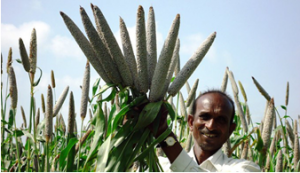|
Empowering women farmers in the polder communities of Bangladesh
Friday, 2016/10/14 | 07:50:00
|
|
Humanth Bhandari, Anna Minj, Tahmina Begum, and Parul Sarker IRRI, Oct 5, 2016
Figure: The project will leverage women’s groups to educate rural women on improved farming and nutritious diets. (Photo: IRRI)
When women are empowered, their families, children, the next generation, and their communities are empowered, too.
Women constitute half of Bangladesh’s 160 million human resources. About two-thirds (53 million) of them live in rural areas and eke out livelihoods from agriculture. More than half of the country’s agricultural labor force are women. They are involved in all agricultural activities, although most common activities are postharvest operations, homestead production, and livestock and poultry raising.
With growing rural outmigration, women’s role in agriculture is increasing. They contribute significantly to rural economy, and their empowerment is crucial to minimizing poverty and hunger.
Compared to men, women farmers face many obstacles. Empowering women farmers requires an understanding of their constraints and implementing targeted interventions for addressing these restrictions. These include land ownership and rights, access to improved varieties and technologies, extension and credit services, inputs such as seeds and fertilizers, farm machines and mechanization services, and knowledge and information. They also have limited decision-making power and participation in economic opportunities. These obstacles not only limit their productivity but also prevent women from achieving their full potential. As a result, women suffer more from poverty, food insecurity, and malnutrition.
See more: http://ricetoday.irri.org/empowering-women-farmers-in-the-polder-communities-of-bangladesh/ |
|
|
|
[ Other News ]___________________________________________________
|


 Curently online :
Curently online :
 Total visitors :
Total visitors :
(34).png)



















